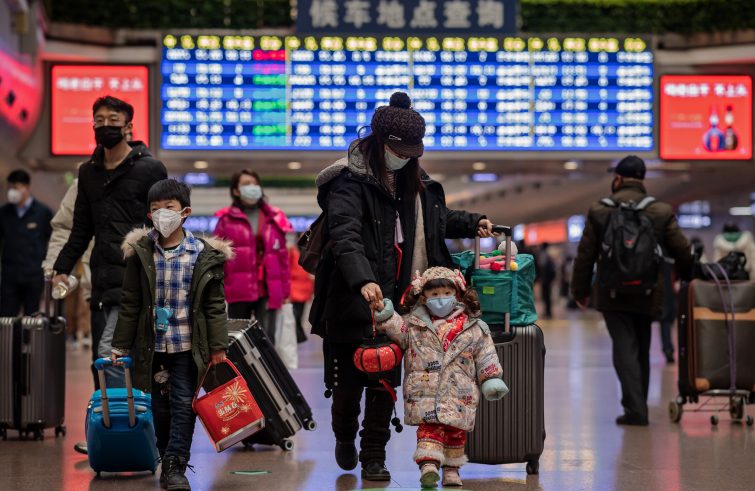
“For China the main issue right now is not to tell us what’s going on, but to try to contain the contamination. Is the information provided accurate, is it reliable? I don’t know. Possibly not even Chinese authorities have a clear picture of the situation.” It’s the opinion of Francesco Sisci, a leading Italian sinologist, author and expert journalist in China. He has primary access to local news sites and agencies. SIR asked him about the real situation on the ground, whether data released by the Chinese authorities on Coronavirus infections and deaths correspond to the truth. Constantly updated numbers keep rising. So far, the number of confirmed cases of infection in China has reached 42,638 at national level, while the death toll ( also at national level) sadly rose to 1,016. But “rumours” arriving from China point at ridiculous figures, unreliable, definitely to be increased with two zeros. There are also disturbing news about the crematoriums of Wuhan working at a fast pace as never before in this period. “We are facing a plethora of myths and rumours”, Sisci pointed out, cautioning to focus on the data: “How many kits for the verification of the disease exist and are available in China? And how many, if any, are needed to determine the exact extent of the contamination?” With Sars it was simpler. It was sufficient to measure the temperature. The limited data available make the novel Coronavirus harder to identify and the disease can also be asymptomatic.
 So, what’s really going on in China?
So, what’s really going on in China?
I will start with prima facie evidence: Wuhan, a city of 11 million inhabitants, is in lockdown. And two days ago Chinese authorities announced that the city of Hangzhou, the capital of the Zhejiang province, is also in lockdown. There is also news that in many cities all activities have been restricted and that also in Beijing people are not going out of their homes or to work. So what we see is great fear.
Why are they afraid? Could the number of infections and deaths be higher than the official figures?
They refer to “verified” infections. We have to be very careful to say that China is lying. In particular, those of us with responsibility for communication: certainly we must shun falsehoods but we must not give in to the temptation to spread panic either. Right now, it means exacerbating an extremely difficult situation.
We are skating on very thin ice.
Why is it difficult?
First of all, it’s difficult because China has a population of 1.5 billion people. There are not enough face masks, let alone enough testing kits for infection, nor is it realistic to expect that these tests will be carried out on the entire population. On the other hand, millions of people cannot be quarantined. And besides, who’s going to stop them? On the basis of what? It’s an unprecedented situation whose extent and severity I honestly cannot fully assess. What is certain is that if two cities as big as Wuhan and Hangzhou have been shut down and a capital such as Beijing is deserted, there is certainly a tremendous fear.
Of what?
Clearly there is fear for the spread of the disease and that is the first thing. However, related emergencies might soon emerge, such as a food crisis. Who will continue manufacturing foodstuffs? Who is going to work? Secondly, will the impact of a crisis of this magnitude on China spare other world markets and economies? That’s impossible. There must be massive solidarity. China must be more transparent and open because it needs the world, but it’s also true that the world cannot do without China.
As a person with a good knowledge of the Chinese people, and having lived most of the time in China, in your view, how are people coping psychologically?
People are afraid of getting infected, so they lock themselves in their homes, hoping the disease will be overcome. While it is true that it spreads rapidly, it is also true that it is not as lethal as other previous epidemics.
Any suggestions on the best way to deal with China at this time?
To be very cautious, especially as the situation is objectively extremely serious.
I suggest transparency, not to hide anything, but to do so with great caution, because panic can be a dangerous amplifier of difficulties and problems.












